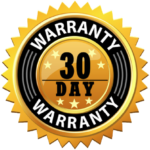Country of Origin & Supply Chain: What You Need to Know Before You Buy
In today’s globalized marketplace, many safety barriers and barricades are manufactured overseas—and not all are created equal. Understanding the country of origin and the supply chain behind your purchase can mean the difference between on-time delivery and costly delays, or between compliance-ready equipment and a liability waiting to happen.
Whether you’re sourcing for a municipality, contractor fleet, or large-scale event, here’s what you should know about where your barricades come from—and why it matters.
Why Country of Origin Matters
✅ Product Consistency & Quality Assurance
Not all manufacturers adhere to the same production standards. U.S.-made and Western-manufactured products are more likely to:
- Meet rigorous compliance standards (e.g., MUTCD, OSHA, ADA)
- Include durable materials that withstand outdoor use
- Provide testing documentation and batch consistency
In contrast, low-cost imports may lack:
- Testing for structural durability
- Reflective material that meets U.S. standards
- Consistent quality across batches
✅ Faster Shipping, Better Availability
If your supplier relies on overseas production:
- Expect longer lead times (especially during global shipping disruptions)
- Delays at ports or customs can push delivery weeks or months behind schedule
- Emergency orders may be impossible to fulfill in time
U.S.-based inventory helps ensure:
- Faster fulfillment, especially in urgent or seasonal use cases
- Predictable restock timelines
- Support for reorders or scaling up quickly
✅ Risk Reduction & Liability
In safety applications, sourcing from an unknown or overseas-only supplier can expose you to serious risk:
- Lack of warranty or product support
- Language or legal barriers to resolving issues
- Limited recourse if equipment fails in the field
Buying from a reputable vendor with traceable sourcing ensures you’re not left stranded—or liable—when it counts most.
Ask These Supply Chain Questions
Before you buy, ask your vendor:
- Where are these barricades made?
- Are they stocked and shipped from within the U.S.?
- What happens if I need to reorder or return?
- Can you provide compliance and quality documentation?
If they dodge these questions or give vague answers, it’s time to look elsewhere.
Supporting Domestic Manufacturing
Purchasing U.S.-made or U.S-assembled barriers has benefits beyond logistics and quality:
- Supports domestic jobs and economic resilience
- Reduces environmental impact via shorter shipping distances
- Encourages accountability and transparency in product sourcing
Bottom Line
Supply chain transparency is no longer a luxury—it’s a necessity. Choosing barriers with a reliable country of origin and domestic fulfillment capability gives you peace of mind, better service, and faster deployment. It also helps you avoid the risk of non-compliance, poor quality, and unpredictable delays.
FAQs
Q1: Is it okay to buy imported barricades if they’re cheaper?
A1: Not always. Imported products may lack necessary compliance documentation or durability, and delayed shipments can halt projects. If you do buy imports, verify that they meet U.S. safety standards and come with support.
Q2: How can I confirm if a vendor has U.S. inventory?
A2: Ask directly about warehouse locations and expected lead times. Reputable vendors will give you clear shipping timelines, product origin details, and options for fast delivery


